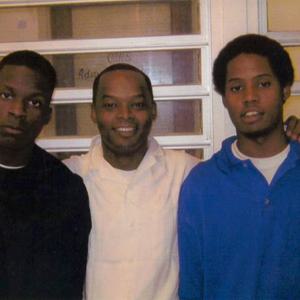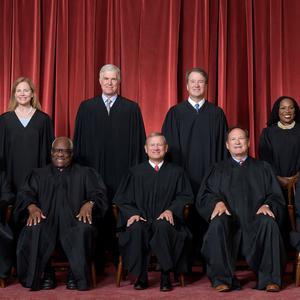
O.H. Eaton Jr. (pictured), who served as a judge for many years in Florida, recently wrote an op-ed in the Birmingham News calling for an end to Alabama’s law that allows judges to override juries’ sentencing recommendations in death penalty cases. Eaton, who presided over numerous capital cases during his 24 years on the bench, said that his experience convinced him that the practive of judicial override is unfair. Citing a report recently published by the Equal Justice Initiative, Eaton noted that one-fifth of Alabama’s death row inmates face execution even though their juries believed they should have been sentenced to life in prison. He wrote, “While consistency in sentencing is the argument most often heard in support of judicial override, the evidence indicates that allowing judges to ignore jury recommendations actually leads to less consistency in sentencing rather than more. Some judges are more likely to override than others. Some counties are generally more supportive of the death penalty than others. So, a death sentence ends up depending on geography and luck of the judicial draw rather than the facts of the case.” Eaton suggested a short-term solution of imposing a rigorous legal standard for allowing judicial override, but ultimately he recommended that juries should make the sentencing decision. Read full op-ed below.
OTHER VIEWS: Alabama juries, not judges, should decide death sentences
By O.H. EATON JR. | Special to The Birmingham News
For 24 years, I served as a trial judge in Florida, presiding over such a large number of death penalty cases that eventually I began instructing judges across the country how to try them.
Recently, I was privileged to teach judges in Alabama about death penalty trials. Florida and Alabama share the same basic death penalty scheme in which individual judges may “override” a jury recommendation and impose a death sentence in a case — despite the fact the jury has determined a life sentence is appropriate for the defendant.
My years of experience on the bench convinced me the judicial imposition of death sentences when the jury has recommended life creates a system that is less fair, rather than more. Unfortunately, a recent report from the Alabama-based Equal Justice Initiative finds this practice is quite common in Alabama: one-fifth of the individuals on Alabama’s Death Row are there even though juries believed they should have been sentenced to life, not death.
Murders understandably devastate the victims’ loved ones and rightfully outrage communities. And the jury, as the representative of the community, is best positioned to determine whether a defendant must pay for his crime with his life.
An elected judge, on the other hand, may feel political pressure to sentence an offender harshly despite the facts. Judges may fear that when up for re-election, voters will only remember the number of death sentences they imposed, and not the facts of particular cases. This political pressure may lead a judge to impose a death sentence even when the community has determined it is not fitting for the crime.
In fact, the EJI report describes how candidates in Alabama’s state judicial elections during their campaigns have boasted of their willingness to sentence murderers to death. The report even confirms the suspicion that judges’ death sentences are politically motivated: In a recent election year, 30 percent of the death sentences were imposed by judicial override; compare that to less than 10 percent in a nonelection year.
While consistency in sentencing is the argument most often heard in support of judicial override, the evidence indicates that allowing judges to ignore jury recommendations actually leads to less consistency in sentencing rather than more. Some judges are more likely to override than others. Some counties are generally more supportive of the death penalty than others. So, a death sentence ends up depending on geography and luck of the judicial draw rather than the facts of the case.
There is even evidence to suggest that the race of the offender and race of the victim may affect override decisions. One Alabama judge admitted during sentencing, “If I had not imposed the death sentence (on a white defendant over the jury’s recommendation of a life sentence), I would have sentenced three black people to death and no white people.”
Thus, a system of judicial override creates a system in which geography, race, timing of trial and the individual judge, rather than the seriousness of the crime, determine whether one will be sentenced to death. This leads to an arbitrary and unfair administration of the death penalty, which should be imposed only when the community believes the crime to be so outrageous the offender must pay with his life.
There is a partial solution to this problem. The Florida Supreme Court imposed a rigorous legal standard for judges who want to override jury decisions in favor of life, requiring that the judge give “great weight” to the jury’s recommendations and prohibiting override unless the facts in favor of a death sentence are “so clear and convincing that virtually no reasonable person could differ.” The standard is so rigorous that no Florida judge has imposed death through override in 12 years — since 1999. The Alabama Supreme Court ought to adopt a similarly rigorous standard.
But there’s an even better long-term solution that only the Alabama Legislature can implement: Change the law so judges are not permitted to ignore a jury’s recommendation for a life sentence. As long as elected judges are able to override juries’ decisions and impose death sentences, arbitrariness and unfairness will continue to permeate the system.
O.H. Eaton Jr. served as a trial judge in the 18th Judicial Circuit of Florida from 1986 to 2010 and is a nationally recognized expert on capital trials. He serves as a member of The Constitution Project’s Death Penalty Committee.
(O.H. Eaton Jr., “Alabama juries, not judges, should decide death sentences,” Birmingham News, July 22, 2011). Read more New Voices.


